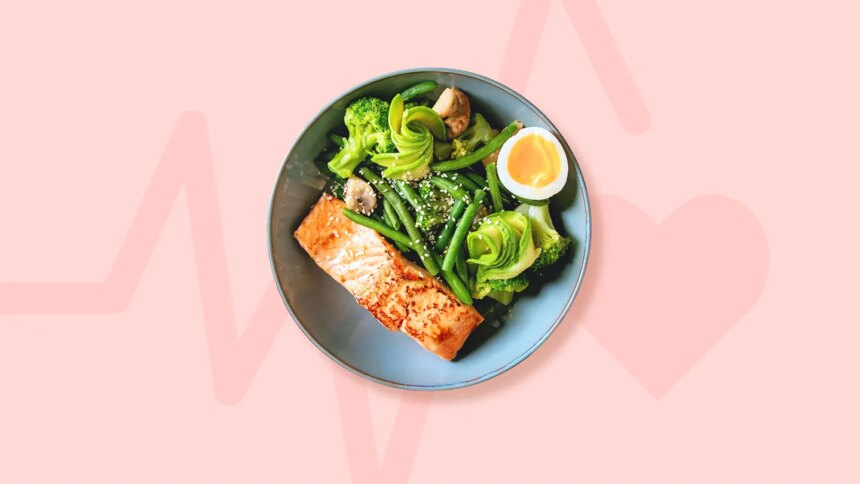Protein plays a crucial role in cardiovascular well-being, serving not only as the building block for heart muscle but also influencing blood flow and overall metabolic function. However, while protein is essential, overconsumption or selecting certain sources can negatively impact heart health.
The amino acids derived from dietary protein directly affect cardiovascular processes. These fundamental components are used to construct and repair tissues like muscle, cartilage, and blood vessels. Specific amino acids offer particular advantages for the heart; arginine, for instance, stimulates nitric oxide production, which helps relax blood vessel walls and improves blood flow regulation.
Experts emphasize that dietary protein benefits cardiovascular health through both direct and indirect mechanisms. It preserves lean muscle mass, aiding weight management and an active lifestyle. Protein promotes satiety, helping to control appetite and potentially contributing to lower blood pressure. Furthermore, it helps stabilize blood sugar levels by slowing digestion, preventing sharp spikes.
Protein consumption also impacts metabolic function, inflammation markers, and cardiovascular risk factors directly or indirectly. The key takeaway is that the overall nutritional profile of protein sources matters significantly beyond just their amino acid content. For example, dairy products provide calcium and potassium, nutrients known to help regulate blood pressure. Plant-based proteins contribute fiber, phytochemicals, and unsaturated fats, which are effective at lowering LDL (“bad”) cholesterol, reducing inflammation, and helping manage blood pressure.
Fatty fish is another excellent source due to its high omega-3 fatty acid content, offering anti-inflammatory benefits that support heart rhythm. Soy-based products like tofu may also contribute to lower LDL cholesterol levels.
While red meat contains protein necessary for the body, consumption should be moderate and mindful of quality. Unprocessed lean cuts in moderation can still fit into a heart-conscious diet if prepared low-fat (e.g., grilling) and paired with vegetables or whole grains. Conversely, processed meats like bacon, sausage, and deli meats are strongly linked to increased cardiovascular disease risk due to their saturated fat, sodium, and nitrate content.
For individuals managing heart disease, careful consideration of protein sources is paramount. The recommended daily intake varies based on body weight but generally suggests 0.8 grams per kilogram for adults under optimal conditions. However, specific activity levels or health goals (like muscle building) may necessitate higher amounts. Crucially, needs increase with age to around 1.2g/kg to combat muscle loss.
It’s important to note that protein intake should be individualized based on kidney function and body weight goals, especially for those with existing heart or kidney disease. Overconsuming protein can pose risks: it may elevate cholesterol levels and blood pressure if the sources are high in saturated fat or sodium, and excess protein could displace more nutrient-dense foods like fiber-rich plants.
Some popular diets, such as ketogenic approaches, involve very high protein intake. While they might show short-term cardiovascular benefits (e.g., improved HDL), experts hesitate to recommend them broadly due to long-term health uncertainties.
Selecting heart-healthy proteins involves prioritizing lean sources low in saturated fat and sodium. This includes unprocessed red meat cuts like round or sirloin steaks, skinless poultry, and eggs consumed in moderation (e.g., 3–4 ounce servings). Completely avoiding visible fat further enhances the benefits of these protein choices.
Plant-based proteins are often highlighted for their heart-protective qualities. They provide fiber, which fosters gut bacteria producing anti-inflammatory short-chain fatty acids beneficial for cardiovascular health. Excellent plant sources include legumes (beans, lentils), nuts, seeds, and soy foods like edamame or tofu.
Fish and seafood should form a significant part of many diets, with fatty varieties particularly recommended twice weekly for their omega-3 content. Opting for low-fat, plain dairy products keeps saturated fat intake lower while maintaining taste and texture benefits compared to full-fat versions; consuming unsweetened yogurt, milk, or cottage cheese is advisable to avoid added sugars.
Ultimately, the goal is not necessarily to eliminate red meat entirely but to understand its role carefully. Moderation with lean cuts like grilled sirloin steak can be acceptable for some individuals under guidance, while minimizing processed meats and prioritizing plain unsweetened dairy products offers a sensible approach for minimizing saturated fat intake.
The Takeaway: Protein is vital for heart health in multiple ways – it builds muscle, influences blood flow, stabilizes glucose levels, and contributes to metabolic balance. Yet, mindful consumption regarding both quantity and quality of sources remains critical. Prioritizing lean dairy (low-fat versions), plant-based proteins, fatty fish rich in omega-3s, and soy products ensures maximizing the cardiovascular benefits while mitigating potential downsides.
Generally, aiming for about 0.8 grams of protein per kilogram of body weight daily is a sensible target for most adults to support optimal cardiovascular function, focusing on heart-healthy sources. Moderation is key even with lean options, balancing intake according to individual needs and health conditions is essential.
Resources We Trust
- Mayo Clinic: Heart-Healthy Diet: 8 Steps to Prevent Heart Disease
- American Heart Association: Picking Healthy Proteins
- Cleveland Clinic: Plate Debate: What Are the Best and Worst Sources of Protein?
- Harvard Health Publishing: Boosting Share of Protein From Plants in Diet May Lower Heart Disease Risk
- University of Missouri School of Medicine: Too Much of a Good Thing: Overconsuming Protein Can Be Bad for Your Health
The Takeaway:
Protein is vital for heart health, but its quantity and quality profoundly influence outcomes. Optimal cardiovascular function requires adequate protein intake from diverse sources that are rich in essential amino acids like arginine (found abundantly in meat, fish, poultry, and plant foods). However, it’s crucial to be mindful of the amount consumed and the nutritional profile of the sources chosen. Lean proteins (low-fat dairy, eggs), fatty fish, plant-based options (beans, lentils, nuts, seeds, soy), and soy products all offer direct cardiovascular benefits when included in a balanced diet. The recommended intake is typically 0.8g protein per kg of body weight daily for most adults to support heart health, focusing on leaner cuts like round steaks or skinless poultry, and high-fiber plant foods, with fatty fish consumed twice weekly being excellent choices. Moderation applies even to red meat; unprocessed, lean cuts prepared low-fat can be part of a healthy diet if consumed sparingly.









